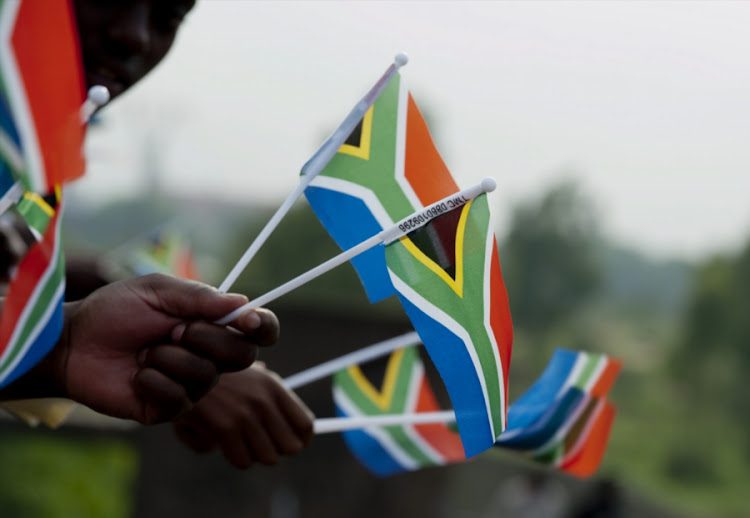APA-Johannesburg (South Africa) South African opposition parties have agreed to form a coalition to topple the governing African National Congress (ANC) and keep the ultra-left Economic Freedom Fighters (EFF) from expanding its base, according to reports monitored here Thursday.
According to TimesLIVES, leaders of seven opposition reached a consensus during a national convention in Johannesburg on Wednesday to chart the formation of a conglomerate that would take on the ANC in the 2024 national election.
The two-day convention, which ends on Thursday, was attended by leaders of the main opposition Democratic Alliance (DA), Inkatha Freedom Party (IFP), Action South Africa, Freedom Front Plus, Action South Africa, National Freedom Party, United Independent Movement and Spectrum National Party and Independent South African National Civic Organisation.
The paper reported that despite the jostling and heated arguments, the parties managed to make “significant” progress by agreeing there was a need for a coalition of opposition parties to try to topple the ANC and keep the EFF out of the government.
It quoted convention chairperson William Gumede as saying such a pre-election multiparty coalition agreement is a first of its kind in the modern South Africa as such pacts between multi-parties have hitherto been made post-election.
“Essentially the coalition has been built based on today. There is a coalition and this is the first pre-electoral coalition in the modern era of South Africa that has actually been consolidated,” Gumede is quoted as saying at the end of the first day of the convention late Wednesday.
He added: “Yes there’s tomorrow and also some sticky issues, difficult tricky issues, but the core foundation has been laid, the pillars have been set and essentially now it’s to build the other parts.”
The group has agreed that whatever government they form will have zero tolerance for corruption, build a capable governance system that will deliver services to all citizens and prioritise poor South Africans, the paper said.
Among the priority issues the coalition agreed to focus on if it garners enough votes to establish a government after next year’s election is the creation of a government “that will be focused on growing the economy and creating jobs, ending load-shedding, combating crime, ensuring there is quality education and quality infrastructure and ending cadre development.”
There was consensus among the parties on the creation of a pre-election coalition agreement that they said would save South Africa from the ANC government.
The opposition parties hope that by forming a pre-election pact, they can present a united front against the ANC and appeal to a broader spectrum of voters who are disillusioned with the ruling party.
A divided ANC, which has governed South Africa since independence in 1994 but has seen its support base dwindle in recent years amid allegations of corruption, mismanagement, factionalism and poor service delivery.
In the last general elections held in 2019, the ANC received 57.5 percent of the national vote, its lowest share since 1994. The DA received 20.8 percent, followed by the EFF with 10.8 percent.
The ANC has also been struggling to maintain its majority in several provinces and municipalities, especially in Gauteng, Western Cape, Northern Cape and KwaZulu-Natal.
In some cases, it has had to rely on coalitions or cooperation agreements with smaller parties or independent councillors to stay in power.
JN/APA


